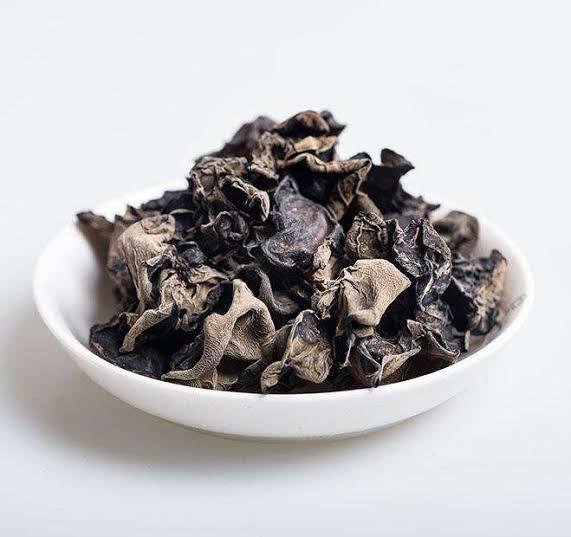Ding Chengliang, the technical director of a fungus farm in Dongning, northeast China’s Heilongjiang Province, had just finished a morning of monitoring the growth of black fungi on the surfaces of fungus-growing bags in one of the farm’s 76 greenhouses. Stepping out of the greenhouse, he stretched and took a deep breath of the fresh spring air.
As the technical director, Ding is responsible for ensuring that the growth of black fungi on the surfaces of the fungus-growing bags in the farm’s greenhouses is closely monitored. The greenhouses produce 15 million fungus-growing bags annually, and about three-quarters of these bags are sold to local farmers, generating an output of about 15 million yuan, or roughly 2.2 million U.S. dollars, each year.
The farm uses the remaining bags to grow fungi for sale, which yields an additional 15 million yuan in output, according to Ding. The fungus farm is a significant contributor to the local economy, generating a total of approximately 30 million yuan (around 4.4 million U.S. dollars) annually.
Black fungus has been a delicacy in China for many centuries, with a history of fungus collecting dating back over 1,400 years ago, according to historical documents. The black fungus grows like mushrooms in the forest and is highly prized for its delicate taste and nutritional value. The fungus is often used in Chinese cuisine to add texture and flavor to a variety of dishes.
As a technical director, Ding Chengliang plays a crucial role in ensuring that the fungus farm operates efficiently and produces high-quality black fungi. With the farm’s significant contribution to the local economy and the long history of black fungus in Chinese cuisine, Ding’s work is an essential part of maintaining a tradition that spans over a millennium.
Wang Qiang, the deputy Party chief of Suiyang Town in Dongning, explained that the manual cultivation of fungi began in the town in the 1990s. At first, farmers used chunks of wood, then switched to sawdust. However, it wasn’t until 2001 that the government started attracting investment and established a wholesale market for black fungi and wild vegetables.
Since then, the number of businesses in the wholesale market has skyrocketed from 40 to 643, and June has become the peak season for black fungi trade. According to Wang, the annual trade volume of black fungus in the market has reached an astonishing 100,000 tonnes, bringing in a trade value of 6 billion yuan.
Qin Haifeng, a Party official of Dongning, revealed that over 28 percent of the city’s farmers are black fungus growers. They produced an impressive 43,000 tonnes of dried black fungi last year, and the annual output in the black fungus industry reached 3.4 billion yuan.
The black fungus industry has become an essential contributor to the local economy, providing jobs for many of the city’s residents. The government’s efforts to attract investment and establish a wholesale market have been instrumental in the industry’s growth and success.
The success of the black fungus industry has not only had a significant economic impact on the region but also a cultural one. Black fungus has been a staple in Chinese cuisine for centuries, and the industry’s growth has helped to maintain and promote this culinary tradition.
As black fungus becomes a pillar industry in Dongning, Jiao Yufeng, a black fungus wholesaler, can be found on a local marketing square shoveling her products into bags on the ground. Jiao, who comes from the distant city of Heihe, is just one of many merchants coming to Dongning for the fungus trade business.
Jiao moved to Dongning in 2020 and decided to stay because she found buyers for her fungi of different grades. She sold over 150,000 kg of black fungi last year, a testament to the strength of the black fungus industry in Dongning.
With the growth of the black fungus industry in Dongning, the city has become a hub for merchants and wholesalers from other regions of China, like Jiao. The industry’s success has not only provided economic opportunities for the city’s residents but also created a vibrant marketplace where buyers and sellers can come together.
As black fungus continues to be a popular delicacy in Chinese cuisine, the industry’s growth shows no signs of slowing down. With the industry becoming a pillar of the local economy, it is expected that more and more merchants like Jiao will come to Dongning to take advantage of the thriving black fungus trade.
In recent years, the Chinese government has been focused on promoting rural specialty industries to increase the income of farmers. This emphasis was also highlighted in this year’s government work report.
The Ministry of Agriculture and Rural Affairs reports that 199 towns in China have already developed specialty industries worth over a billion yuan. These industries have been crucial in injecting vitality into the economy of rural areas across the country.
Through these initiatives, the Chinese government has been able to create jobs and opportunities for farmers, who previously had limited options for employment. These specialty industries have also helped to promote and preserve Chinese cultural traditions, such as the cultivation of black fungus in Dongning.
Overall, the promotion of rural specialty industries has had a positive impact on the economy of China, as well as on the lives of farmers and rural communities. As such, it is likely that the government will continue to prioritize and invest in these industries to support the growth and development of rural areas across the country.
Read More:
